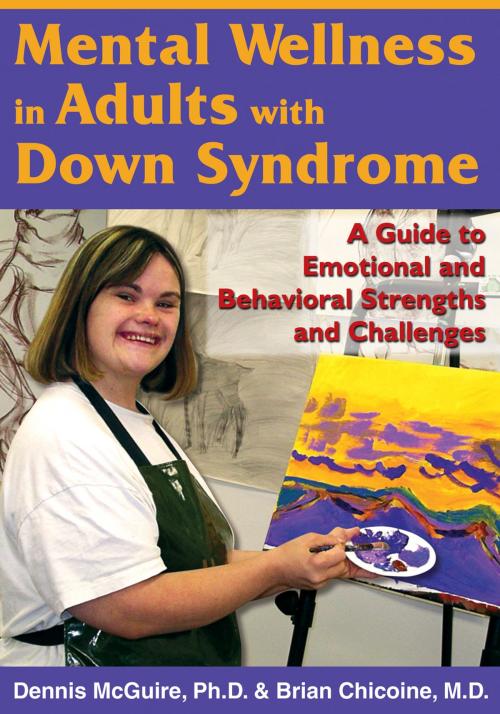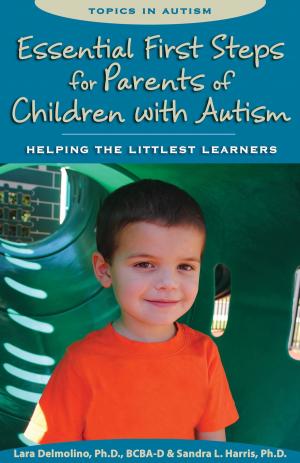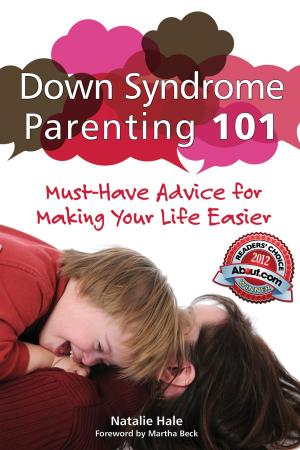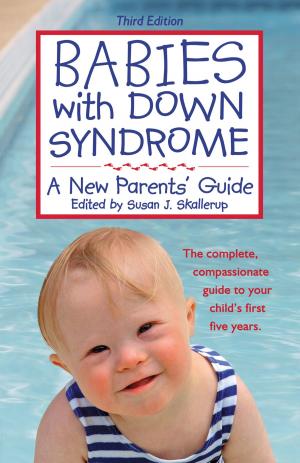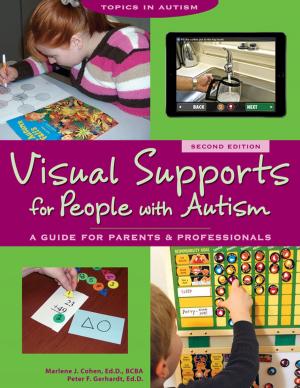Mental Wellness in Adults with Down Syndrome
A Guide to Emotional and Behavioral Strengths and Challenges
Nonfiction, Family & Relationships, Parenting, Special Needs| Author: | Dennis McGuire, Ph.D., Brian Chicoine, M.D. | ISBN: | 9781606132197 |
| Publisher: | Woodbine House | Publication: | May 22, 2013 |
| Imprint: | Woodbine House | Language: | English |
| Author: | Dennis McGuire, Ph.D., Brian Chicoine, M.D. |
| ISBN: | 9781606132197 |
| Publisher: | Woodbine House |
| Publication: | May 22, 2013 |
| Imprint: | Woodbine House |
| Language: | English |
In this groundbreaking book, the founding directors of the Adult Down Syndrome Center of Lutheran General Hospital in Park Ridge, Illinois--the first and premier facility of its type in North America--share nearly 30 years of combined experience treating more than 3,000 adolescents and adults with Down syndrome aged 12 to 83. Mental Wellness is an invaluable resource for parents, mental health professionals, teachers and caregivers who want to understand better how to promote mental health and resolve psychosocial problems in people with Down syndrome. This authoritative, easy-to-read guide clarifies what are the common behavioral characteristics of Down syndrome, how some can be mistaken for mental illness, and what are the bona fide mental health problems that occur more commonly in people with Down syndrome. As McGuire and Chicoine describe these traits and mental health issues, they also explain, through detailed observations and case studies based on their patients, how parents, caregivers and adults with Down syndrome can work together to foster mental wellness. In addition, the authors discuss the importance of regular assessment and how behavior and mental well-being can be affected by environmental conditions, social opportunities, and physical health. The first section of the book offers a wealth of knowledge and insight about typical behavioral traits of Down syndrome and how to work with them to encourage mental wellness on a day-to-day basis. Topics include: Community and Family Support Self-Talk and Imaginary Friends Communication-Related Problems Memory Strengths and Deficits Emotional Development Tendencies Toward Sameness and Repetition Self-Esteem and Self-Image Lifespan Issues The second section on mental illness includes chapters on such conditions as: Depression and Other Mood Disorders Anxiety Obsessive-compulsive disorder Tic Disorders and Repetitive Movements AD/HD and Other Impulse Control Issues Autism Alzheimer disease In each case, the authors describe the problem signs, the diagnostic process and a range of treatment options, such as counseling, behavioral therapy and medications. Now, thanks to Mental Wellness, readers all over the world can pay a virtual visit to the Adult Down Syndrome Center and benefit from the insight and expertise of Drs. McGuire and Chicoine. Anyone who knows or cares for an adult with Down syndrome will undoubtedly understand them better after reading this guide.
In this groundbreaking book, the founding directors of the Adult Down Syndrome Center of Lutheran General Hospital in Park Ridge, Illinois--the first and premier facility of its type in North America--share nearly 30 years of combined experience treating more than 3,000 adolescents and adults with Down syndrome aged 12 to 83. Mental Wellness is an invaluable resource for parents, mental health professionals, teachers and caregivers who want to understand better how to promote mental health and resolve psychosocial problems in people with Down syndrome. This authoritative, easy-to-read guide clarifies what are the common behavioral characteristics of Down syndrome, how some can be mistaken for mental illness, and what are the bona fide mental health problems that occur more commonly in people with Down syndrome. As McGuire and Chicoine describe these traits and mental health issues, they also explain, through detailed observations and case studies based on their patients, how parents, caregivers and adults with Down syndrome can work together to foster mental wellness. In addition, the authors discuss the importance of regular assessment and how behavior and mental well-being can be affected by environmental conditions, social opportunities, and physical health. The first section of the book offers a wealth of knowledge and insight about typical behavioral traits of Down syndrome and how to work with them to encourage mental wellness on a day-to-day basis. Topics include: Community and Family Support Self-Talk and Imaginary Friends Communication-Related Problems Memory Strengths and Deficits Emotional Development Tendencies Toward Sameness and Repetition Self-Esteem and Self-Image Lifespan Issues The second section on mental illness includes chapters on such conditions as: Depression and Other Mood Disorders Anxiety Obsessive-compulsive disorder Tic Disorders and Repetitive Movements AD/HD and Other Impulse Control Issues Autism Alzheimer disease In each case, the authors describe the problem signs, the diagnostic process and a range of treatment options, such as counseling, behavioral therapy and medications. Now, thanks to Mental Wellness, readers all over the world can pay a virtual visit to the Adult Down Syndrome Center and benefit from the insight and expertise of Drs. McGuire and Chicoine. Anyone who knows or cares for an adult with Down syndrome will undoubtedly understand them better after reading this guide.
